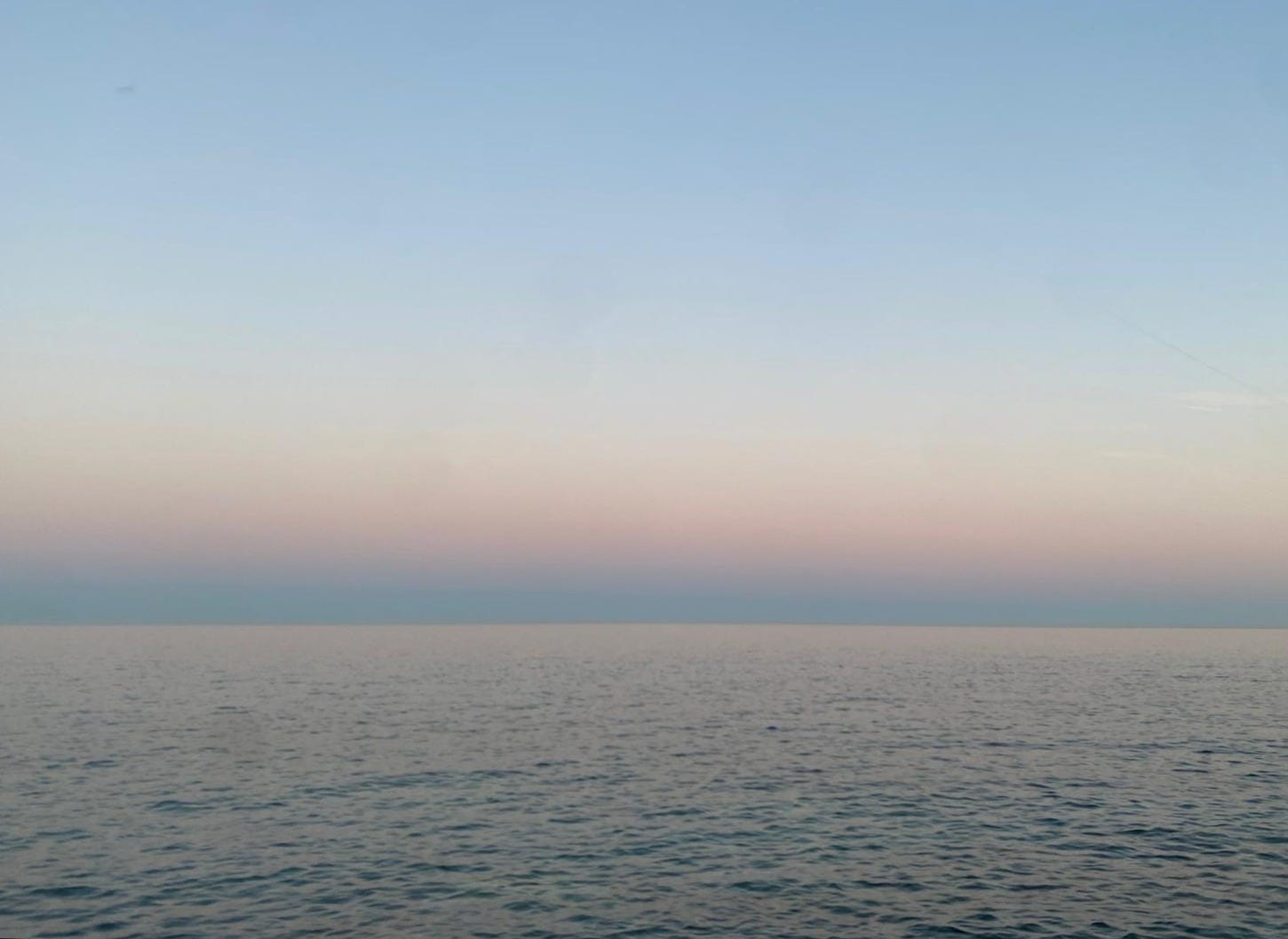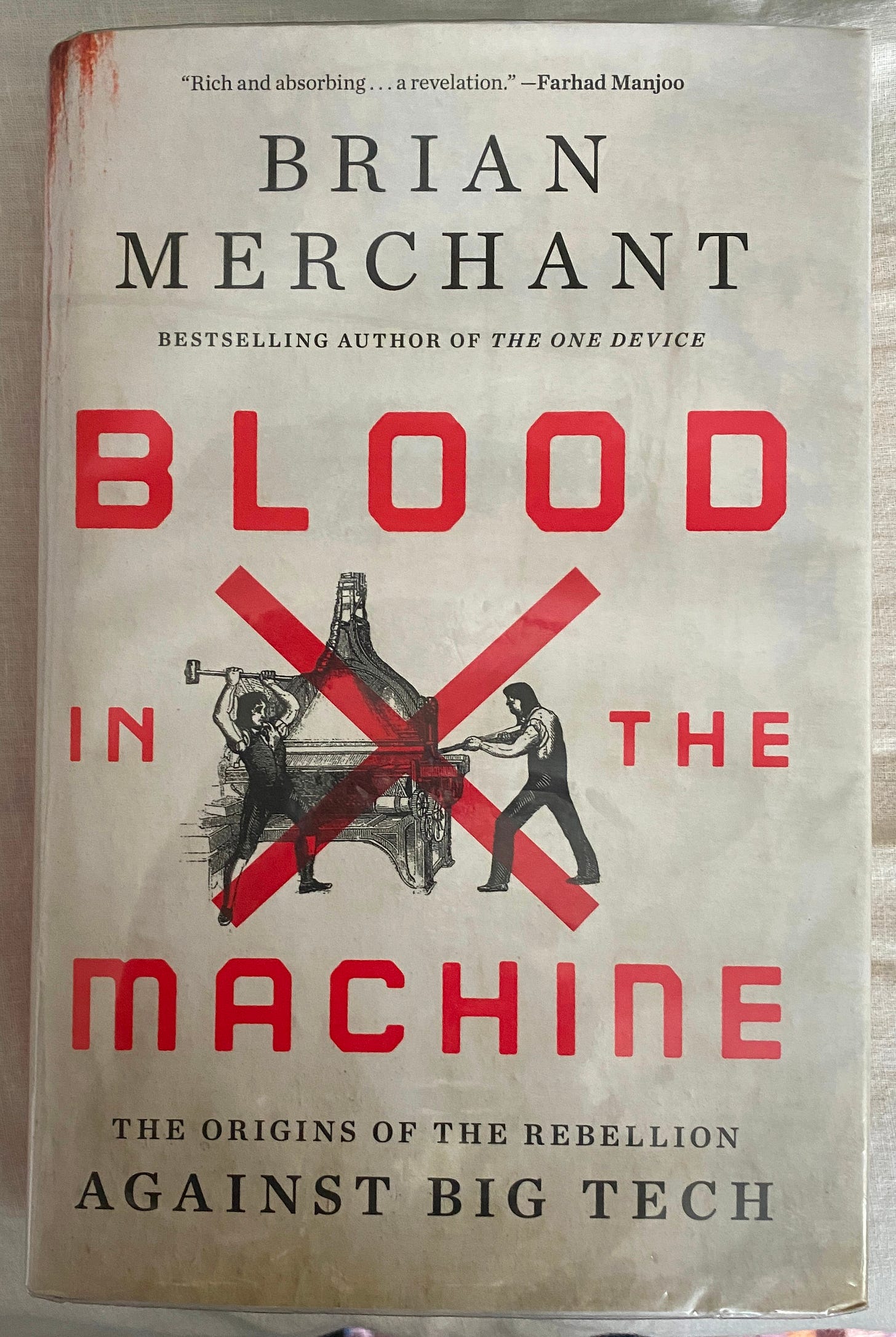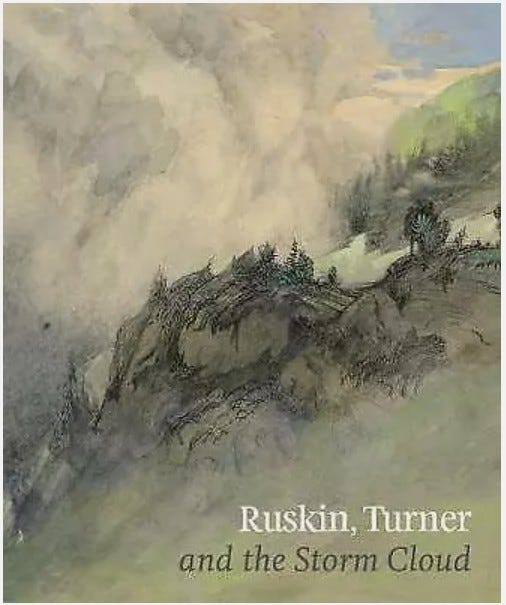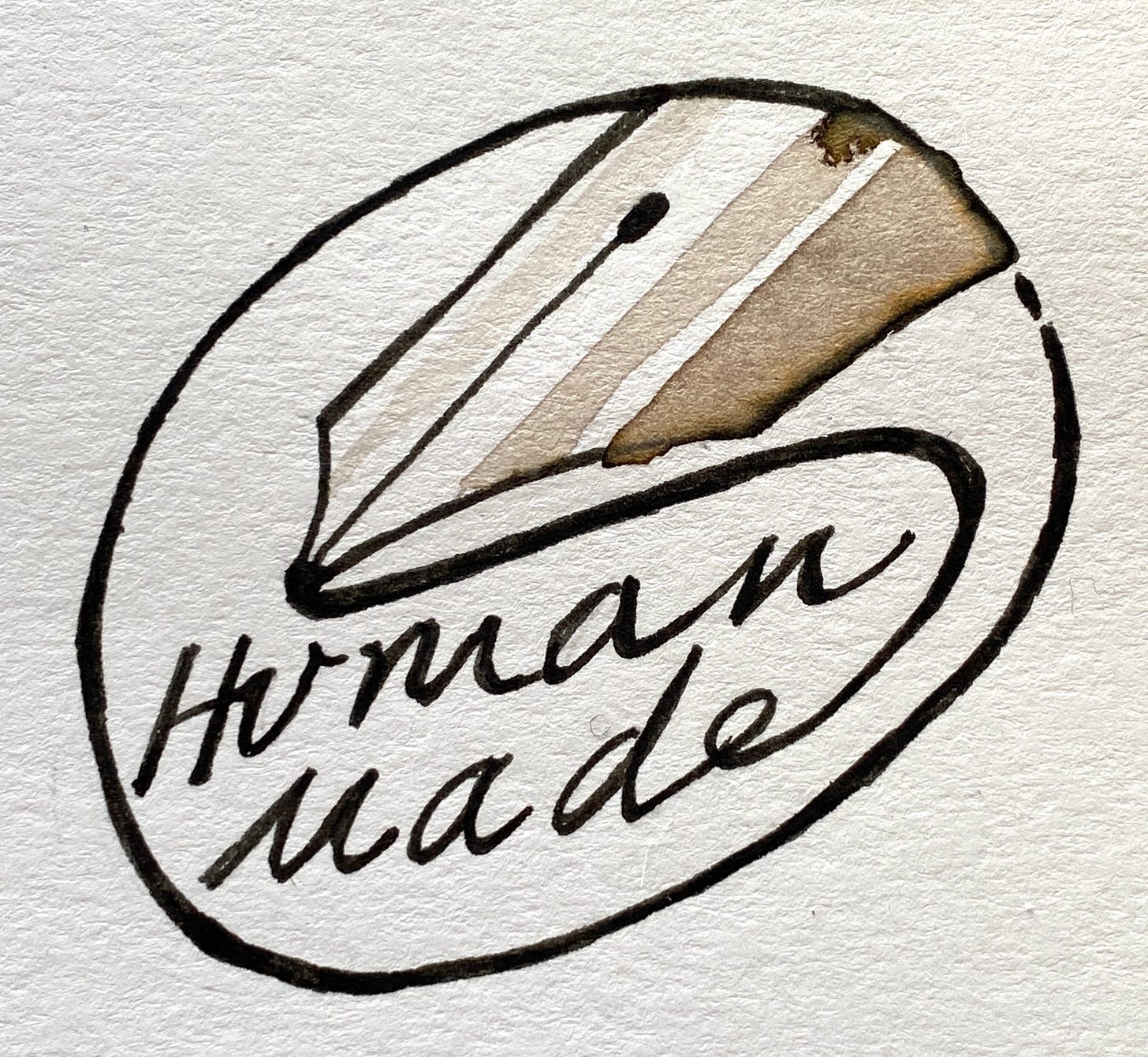Escape from the Cloud of Knowing
non-speculative non-fiction
The function of the Machine is onslaught
The oil that allows its gears to turn is provided by your mind.
The mill which expresses the oil from your mind is precisely calibrated to extract the maximum levels of anxiety from your thoughts, as, like the industrially mined and finely micronized graphite additive in engine oil, your raised cortisol and adrenaline levels greatly aid the smooth functioning of the Machine.
The large and small gaps in the onrushing overwhelm of information, provided by family, community, happenstance, weather, geography, responsibility, religion and work have been abolished by the One Device.
Commitment to the Cloud of Knowing is not optional
To step out from under its shade means losing the ability to pay a bill, see a doctor, or know what time to pick your child up after a school event. You will quickly burn under the glare of that which must be done but may not be achieved using simple, non-technological means.
Direct methods in all things are no longer permissible. Direst consequences exist, particularly for those holding up pieces of cardboard hand-painted with words.
‘Walking away from Omelas’ is no longer possible, as by specialising in slickly integrated healthcare, tax, intelligence and criminal database provision, Omelas has, or is about to, bloodlessly annexe your country.
Onslaught is to the healthy growth of a culture as penicillin is to bacteria
To gain immunity to onslaught, one cannot wish it away; neither meditation, prayer nor the casting of spells will stop it. In that respect onslaught and air quality during a wildfire are analogous.
There are certain bacteria-eating phages to which we may look for strategic clues.1 However, treating onslaught as a source of energy would be wiser in the short term, as due to its toxicity, it cannot yet be made use of as food.
Transformation of the poison of onslaught into a medicine for restoring abundant, diversely constituted, healthy societies seems at first unlikely. Yet the astounding bounce-back of life forms from epochal catastrophic bottleneck events is well-studied.
Alchemy is no longer turning lead into gold, nor the prima materia of one’s psyche into personal spiritual realisation. These are lonely pursuits and the Machine permits no garret or stone hermitage unturned, (grasped and desecrated by the pincer action of satellite surveillance and pervasive telephone signal).
So be it. We shall not work alone and we will put down the presently unhelpful image of the lone hermit seeking his own ultimate salvation, as the Machine, by means of onslaught, seeks for you to feel un-resourced for relationship and lacking energy for connection with others.
Onslaught lies. In extending care and connexion lies renewed vitality.
Luddsiblingry
The Luddites did not hate machines and they were not indiscriminate. They took issue with the damage to the dignity of their work, the threat to commonality, family life and control over their own working days, the imposition of machine-part-like framing of their labour, the degradation of the quality of workmanship, the removal of the profits of their work to the owners of the machines.
Their argument was with those people who would impose this on them.2 All those who today oppose the instigators of our current onslaught, the handmaidens of the Machine and the (breathtakingly fast) removal of each particular culture’s convivial means, are in this way, spiritual heirs to Ned Ludd, martial heirs to General Ludd and organisational heirs to Lady Ludd.
Greetings, good Luddsiblings.
Learning to look beyond surfaces
Perhaps we would rather talk about spirit, camaraderie and beauty. I know I would. To make this again possible we must first speak of military history, as my Grandmaster said, ‘the fighting eye of life is death’.
What gave rise to the slick surfaces of the agent-devices of our seemingly immanent downfall? The removal of difficulty, the beatification of ease, the promotion of frictionlessness as the most sought-after quality.3
What gave rise to straight roads, military garrisons and castles (for this example, in Britain)? The desire of first the Romans, and later the Normans, to more easily subjugate and control the population and extract natural resources, labour and taxes.
These three things made it easy for rulers to march and station colonising battalions and oversee with panopticon-like advantage from castle keeps, and their methodologies are mirrored in the information superhighways, centralised server farm storage, and camera, microphone, GPS and accelerometer sensors of our devices.4
We were unwittingly conscripted. Yet everywhere are jaunty memes in comic sans implicitly saying ‘don’t mention the war!’
Matter matters
There are only two kinds of people in the world, those who wish everything for themselves, (and by extension ‘their people’), and those who wish everyone to have what they need. It is entirely possible to change which type of person you are and since the dawn of fixed settlements, agriculture and wars, due to inner or outer events people have migrated back and forth from one camp to the other.5
The onslaught makes only one type of migration probable, from wider care to self-obsession.
There are only two kinds of thing in the universe, matter and imagination. (No, really.) Both matter and imagination matter (forgive me) equally.
Imagination (expressed as thought, science, art, belief, love, charisma, pride, regret, opinion, hatred, devotion, discovery, faith, desire, leadership, medicine, myth, nationhood, envy, fear, etc, ad infinitum) wields matter, sometimes as a club, at other times a scalpel, occasionally as a chalice.
But most recently, the imagination-egregore of those who control technology and government generally wields matter as a wand, as does Mickey Mouse in The Sorcerer’s Apprentice, (Disney’s rightly well-known and much-loved 1940 interpretation of Goethe’s work, based around Dukas’ symphonic rendition of the story).
Sadly, prior to picking up the wand, our current tech and government overlords, (who I will now inwardly, for ongoing light relief, refer to as ‘Mickey’), locked their Master in a cupboard, then papered over the cupboard door, and now deny all existence of ever having had a Master, declaring themselves on the brink of creating a Master to end all Masters.
You couldn’t make it up. Except, that we did, as it appears every culture has a myth describing the wages of hubris. These stories were meant to be cautionary rather than instructional.6
Matter. Fortunately / unfortunately, the laws of thermodynamics, and the ability of creatures to live in toxic, genocidal, turbulent, war-torn, or over-heated environments all have a limit. In this regard, Matter, the physical reality of the universe, will again wield Imagination, and its action is like balancing the scales. This is not guaranteed to be an enjoyable experience for all involved.
At this point, when, ‘thanks’ to the onslaught, everyone near a screen can easily see the ravages those who would install the Machine inside each person would allow, deciding how we will respond each day, until balance is restored, is a matter of character.
What will we do to come out from underneath the Machine’s fake Cloud of Knowing, which is not made of real knowing but is a barely convincing animation of the movement of the tattered fringe of the hem of the hand-woven shawl of real knowing?
This cannot be faced alone, even if you are a reclusive writer who would quite like to stay in and sort everything out using your brain.
I will be continuing to think and write, meet others and have conversations about this over the coming months. I don’t really have answers and I am not writing from a place where I have it all worked out. I don’t think such a place exists, really. How are you responding? Where do you find strength and respite?
I send solidarity from my desk for your day ahead, attending to love and connection, hopefully always evading despair (the battering ram of the onslaught), in your own creative ways.
As Brian Merchant says, ‘hammers up!’ To this I’ll add, ‘chin up!’
This week’s several good things: 1: Blood in the Machine7 by Brian Merchant. I am still angry that I was not taught this part of history at school in 1980s, only ‘Kings and Queens’. What a perfect book for our times, gripping, well-researched, and turning over widespread pre-conceived ideas that still serve the ruling classes, though these are now mostly techno-oligarchs rather than princes. It was heartening to see the links between the first uprisings against soulless automation and our own times. Merchant unpicks the threads linking Byron, Mary Shelley’s Frankenstein, my local Tolpuddle Martyrs and the deeper reasons for the north-south divide here in England, which I had never truly understood until now.
Another rather humbling realisation was the depth and intellectual richness of the letters and pamphlets written by the Working Class Luddites and their supporters. More generally, the text quoted verbatim from the era covered in the book, the early 1800s, was structurally more complex both in vocabulary and clause-use than what is usually read now. In letters to each other, writers from all classes seemed to be able to sustain a thought longer, express themselves more clearly and infer far more literary, Biblical or historical metaphors than is currently the norm in every day writing. I do not think this is purely stylistic, but reflects a contemporary lack, as sad as the decline of birdsong or insect life, and not entirely unrelated. Studying Art from age 17 onwards, I now feel I missed out on reading, or rather the quality of what I could have been reading, as I certainly consumed many books. Since Covid, I had been reading far less than I used to, and though, thankfully, this period is now over, I feel inclined to read much more from before the current era and will consult this helpful resource shortly.
I had to wait a long time for a library copy of the book as, frankly, times are financially pretty hard for my household right now8, so buying myself a copy wasn’t possible. But if you have spare funds for books, buy this one, you will not regret it. His Substack is also excellent.
2: Straight afterwards at Barter Books (see below), I picked up the exhibition catalogue to Ruskin, Turner & the Storm Cloud, a 2019 show at York Gallery of works by and related to John Ruskin, J.M.W. Turner, the industrial era they worked in, and the dark clouds of those times, both atmospherically and culturally. Containing a superb range of essays by twenty writers including Timothy Spall, (who played the eponymous role in Mike Leigh’s 2014 film Mr Turner), and Robert Macfarlane, the book has made me reassess John Ruskin and want to delve into his writings. It dovetailed very well into Blood in the Machine as it continued themes of work, dignity, beauty, mental suffering and physical harm all affected by industrialisation. I now feel that I was sold a cheap lie at art college; Ruskin was written-off as a joke, rather than as an important, humane, thinker of his time, seen only as someone who could not bear the physical reality of his wife on their wedding night, compared unfavourably to smooth marble statues. It is time to look beneath the surface of that story.
Relatedly, it has made me think critically about how I was taught to draw, with emphasis placed on attention to surfaces, including light and shade, but never on anatomy, perspective or underlying structure. It means I can faithfully render two or three dimensional sources into a convincing pictorial form, but I lack the bone-deep knowledge that a Classical art education would have given me. I remember the painting tech assistant at college bemoaning my lack of understanding of facial structure in a commissioned drawing I made of Jacob Marley from Dickens’ A Christmas Carol, for a seasonal show in our town. Though his words stung, he was right. George was by far the best technical painter amongst all the staff at Kingston Uni, but he was not allowed to teach and was chiefly employed as the person who helped you make stretchers for canvasses.
3: Where I got this book, and a pile of others, was the truly delightful place of bibliophile pilgrimage - Barter Books, Alnwick, Northumberland.9 It is possibly the best second hand bookstore I have ever been in. Housed in a disused railway station, it is full of great art and murals, endless books, friendly staff, even very good home made cakes and coffee. I am already planning our next visit. If you love reading and are coming to the UK, just go there. If you need further excuses, you can also visit the nearby Holy Island of Lindisfarne and Bamburgh Castle, if saints and Viking history will help bring you this far north, beyond Hadrian’s Wall.
4: Before I left for the North I had the pleasure of recording a conversation with my old friend for a series leading up to the publication of his new book Against the Machine, which I am very much looking forward to reading. We talked about Art, embodiment, the Way, and much more. Thoughts from the books mentioned above and our conversation have braided themselves into a pleasingly multi-stranded cord this week, eventually leading to this Substack post. I’ll post a link to the podcast when Paul uploads it.
If you’d like to comment but can’t afford a subscription, just reply to this email and I will comp you six months for free.
For all her well-meaning yet highfaluting words about making kin in the Cthulucene, Donna Harraway’s book Staying With the Trouble is used like finest powdered graphene in the top quality engine oil of choice of the Machine - The International Art World, and its companion luxury lubricant, Postmodern Philosophy.
And they did it even when the British Army invaded the north of England and murdered them. Why was I not taught this at school? Everything the ruling class of Britain (and before the Union, England) later did to Ireland, India, America, Kenya… they also did here, first, to our own working class, so as to perfect the method.
Promoted while knowing full well that acclimatisation to lack of friction and resistance in embodied, mental and metaphorical realms will fundamentally ruin the sense perceptions and strengths of any human. Note the osteoporotic astronauts returning from the ISS for lack of gravity’s tonic tug.
Palantir are making all this transparent to Government. Coming to a jurisdiction near you, soon, or already if you are in USA, UK, NZ, China (who have their own even more advanced systems) and more.
This framing has nothing to do with conservative vs progressive ideas, I am speaking of character and subsequent behaviours, as likely to be found in a masjid or church as a politburo meeting or picket line. Originally there was only one kind of person, as we were all one people and it was easy to see how harming others harmed ourselves. Before this, all people were once creatures, and before this all creatures were Earth, which was within the Great Mystery. None of this has materially changed, only people’s minds have changed. The inability to see this is called ‘missing the mark’ in my tradition. In certain other traditions is it sometimes called ‘sin’.
I have been responding to this predicament for some time and you can read about it here.
A very interesting review can be found here.
Europeans’ genuine fears about invasion by Russia are manifesting as people holding onto all their spare cash at the moment and not attending the kind of art or craft workshops my colleagues and I offer. Though classes based on my books have all run and mostly sold out, other courses where I assist have been cancelled and I have lost much income this summer. So, huge thanks to those who pay to subscribe to my work here, you make a vast difference to my day-to-day life.
Click for the delightfully ancient Web 2.0 site.










Brilliant…feels essential reading if like me you are of these islands, (especially now) but visitors could welcome this intro to the new 'hinge-time'. This is thinking and feeling where it matters as The Machine fast tightens its grip.
Glad you made it along this coast. If you come past again give us pre-notice - I have an email - and I will buy you a coffee at Barter Books. Am looking forward to the conversation with Paul Kingsnorth.
PS As you infer, perpetration of that 'joke' about Ruskin at a purportedly University Art College was not funny.
Wonderful, thankyou for this Caro. Here's a conversation I would love to stay part of. The clarification of what (or rather, who) the Luddites took exception is to is deeply relevant to our "machine learning" moment. The thin read thread I clutch hold of here lies the contradiction that I read here, between your "Leaving Omelas is no longer possible", and "It is entirely possible to change which type of person you are and since the dawn of fixed settlements, agriculture and wars, due to inner or outer events people have migrated back and forth from one camp to the other." The latter says better than I could have done what 'leaving' actually means, and has always meant. Leaving Omelas was never possible. Leaving Omelas is always possible. Another 'two types' therein.